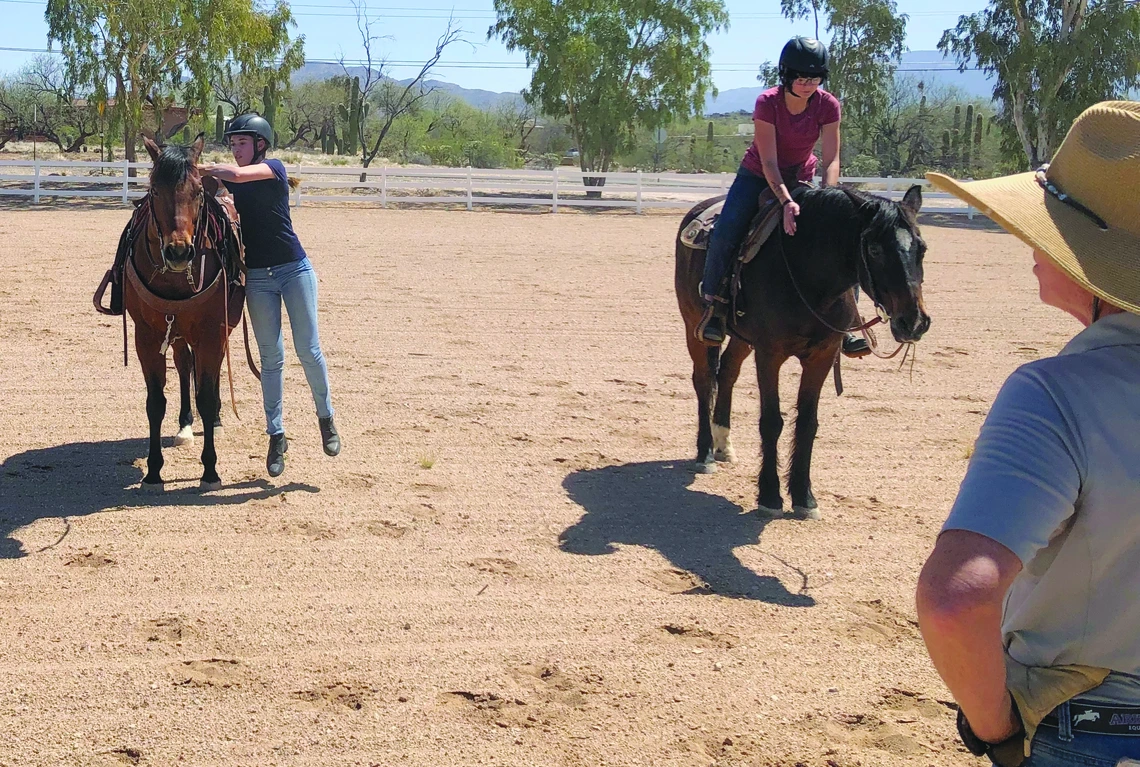ACBS’s equine emphasis: transitioning to an improved program

ACBS students pursuing an Animal Science degree with an equine emphasis will have noticed a transition beginning in January 2022. Transitions involving the curriculum and instruction can be worrying (or even scary) to students who need to complete their course requirements. To reduce or offset the worry, let me explain what has happened and why it presents an exciting opportunity to offer an even stronger equine program to the benefit of our students.
In January 2022, the Al-Marah Equine Center transitioned to be fully managed by the UA Arizona Experiment Station who manages several research centers around Arizona (e.g., V-Bar-V Ranch, Yuma Agricultural Center). This necessitated staffing changes and an evaluation of the Al-Marah facilities and equipment for their suitability for teaching. As I am sure you can appreciate, when working with large, powerful animals—the horse—student safety comes first. Consequently, much attention in the past few months has been directed toward updating the facilities for equine teaching and ensuring that the essential equipment for working with horses is in sound condition.
The transition in management also provided an opportunity to evaluate the equine emphasis curriculum. To ask, in effect, if the course offerings are still in the best interest of the students. Some students enroll in these courses because they already have some experience working with horses, and they wish to become more knowledgeable and proficient in horsemanship so that they can continue to enjoy the companionship of horses for pleasure or sport. Others enroll because they intend to find a career in the horse industry. For both kinds of students, the curriculum needs to provide the scientific knowledge and skills to understand horses, to develop safe handling and riding practices, and ultimately to build fulfilling relationships with horses for pleasure, sport, or work.
ACBS has a task force in place to evaluate the curriculum with a special focus on courses needed for a variety of potential equine careers. Our courses and how they are sequenced must also address the needs of beginners as well as advanced students in their professional development. To help us accomplish these curricular goals going forward we plan to add a full-time faculty, trained in equine science to our team this Fall.
None of this can be accomplished without the most important equine instructors—the horses themselves! Although the ACBS teaching horse herd will continue to be housed and cared for at the Al-Marah Equine Center, the transition also provided an opportunity to evaluate each horse’s suitability for teaching. As many of you who work with horses know already, horses, like people, have different temperaments and personalities, and past exposure to different experiences, which make some horses more suitable as “teachers” than others. It takes time to figure this out, but it is worth the investment because carefully selected horses are safer for students, especially at the beginner level.
It is also equally important to ensure the safety and welfare of our horse partners which is easy to overlook if we are focused solely on what the horse can do for us or how we can get it to do what we want. In ACBS we are committed to teaching about horse welfare to promote a fulfilling human-horse partnership and to making sure that our horses are given the level of care to achieve the best welfare possible.

